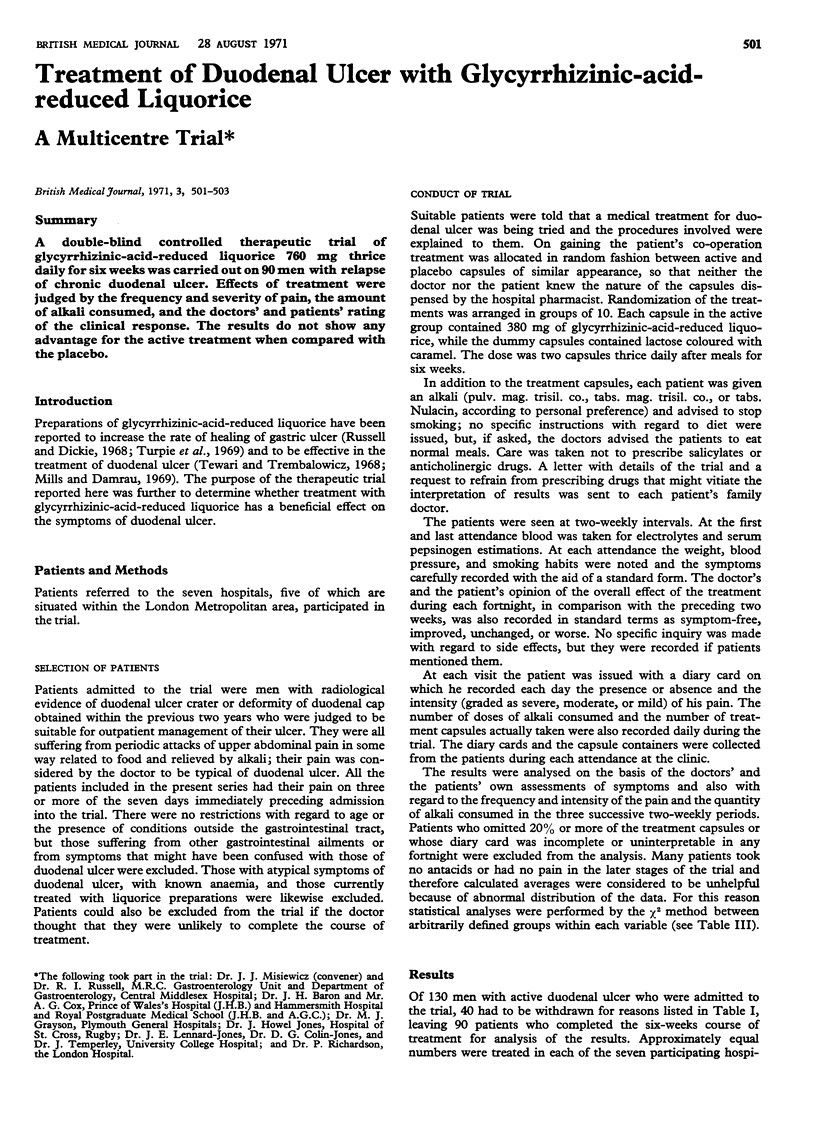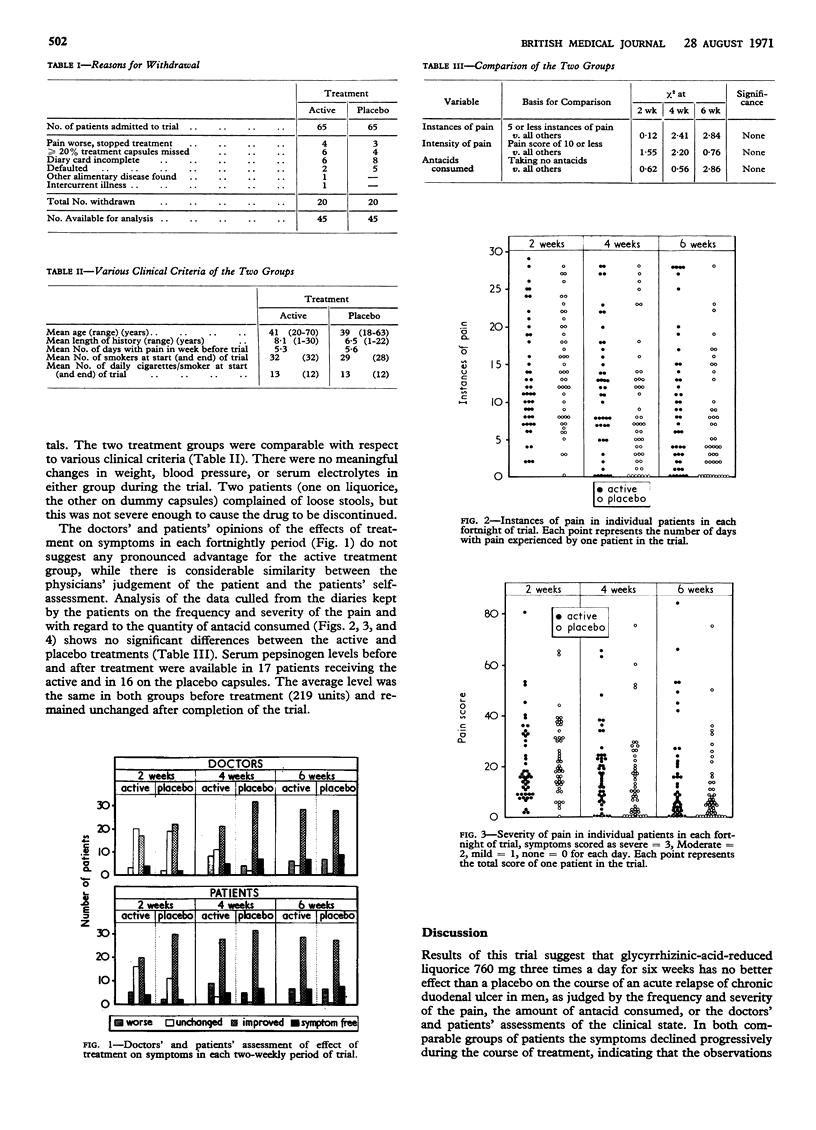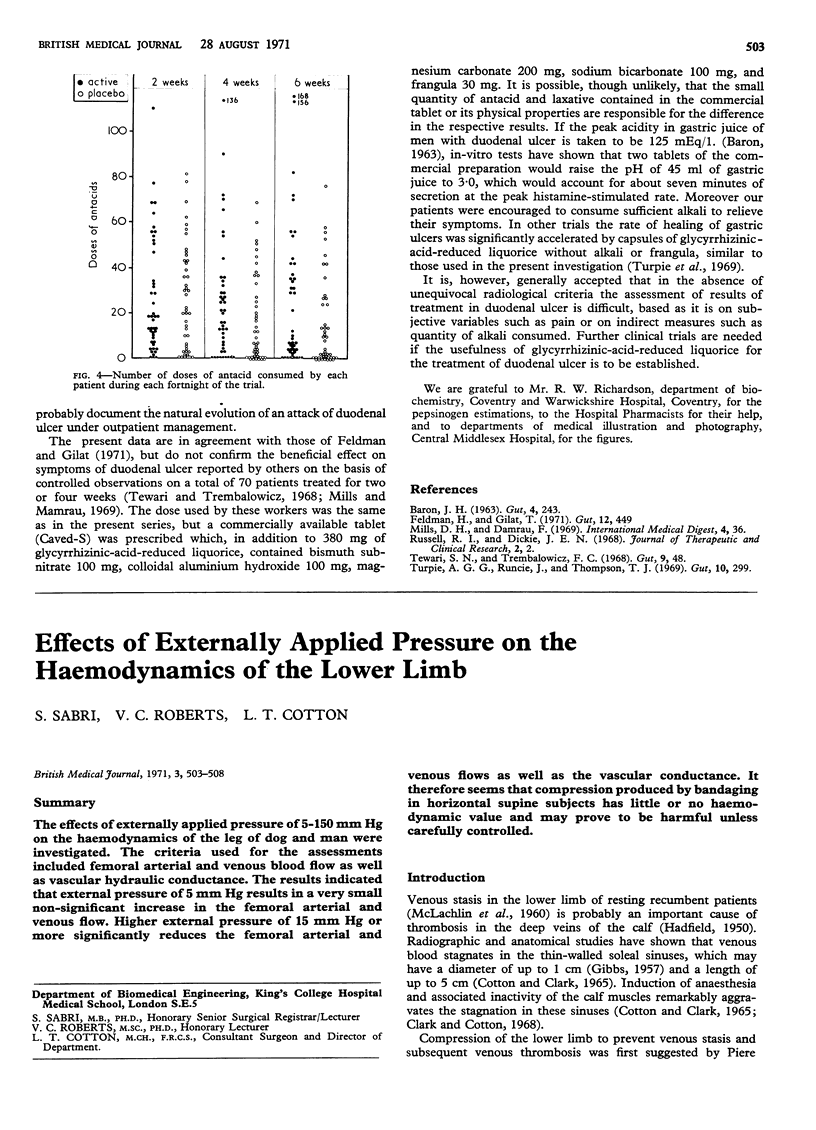Abstract
A double-blind controlled therapeutic trial of glycyrrhizinic-acid-reduced liquorice 760 mg thrice daily for six weeks was carried out on 90 men with relapse of chronic duodenal ulcer. Effects of treatment were judged by the frequency and severity of pain, the amount of alkali consumed, and the doctors' and patients' rating of the clinical response. The results do not show any advantage for the active treatment when compared with the placebo.
Full text
PDF


Selected References
These references are in PubMed. This may not be the complete list of references from this article.
- BARON J. H. AN ASSESSMENT OF THE AUGMENTED HISTAMINE TEST IN THE DIAGNOSIS OF PEPTIC ULCER. CORRELATIONS BETWEEN GASTRIC SECRETION, AGE AND SEX OF PATIENTS, AND SITE AND NATURE OF THE ULCER. Gut. 1963 Sep;4:243–253. doi: 10.1136/gut.4.3.243. [DOI] [PMC free article] [PubMed] [Google Scholar]
- Feldman H., Gilat T. A trial of deglycyrrhizinated liquorice in the treatment of duodenal ulcer. Gut. 1971 Jun;12(6):449–451. doi: 10.1136/gut.12.6.449. [DOI] [PMC free article] [PubMed] [Google Scholar]
- Tewari S. N., Trembalowicz F. C. Some experience with deglycyrrhizinated liquorice in the treatment of gastric and duodenal ulcers with special reference to its spasmolytic effect. Gut. 1968 Feb;9(1):48–51. doi: 10.1136/gut.9.1.48. [DOI] [PMC free article] [PubMed] [Google Scholar]
- Turpie A. G., Runcie J., Thomson T. J. Clinical trial of deglycyrrhizinized liquorice in gastric ulcer. Gut. 1969 Apr;10(4):299–302. doi: 10.1136/gut.10.4.299. [DOI] [PMC free article] [PubMed] [Google Scholar]


